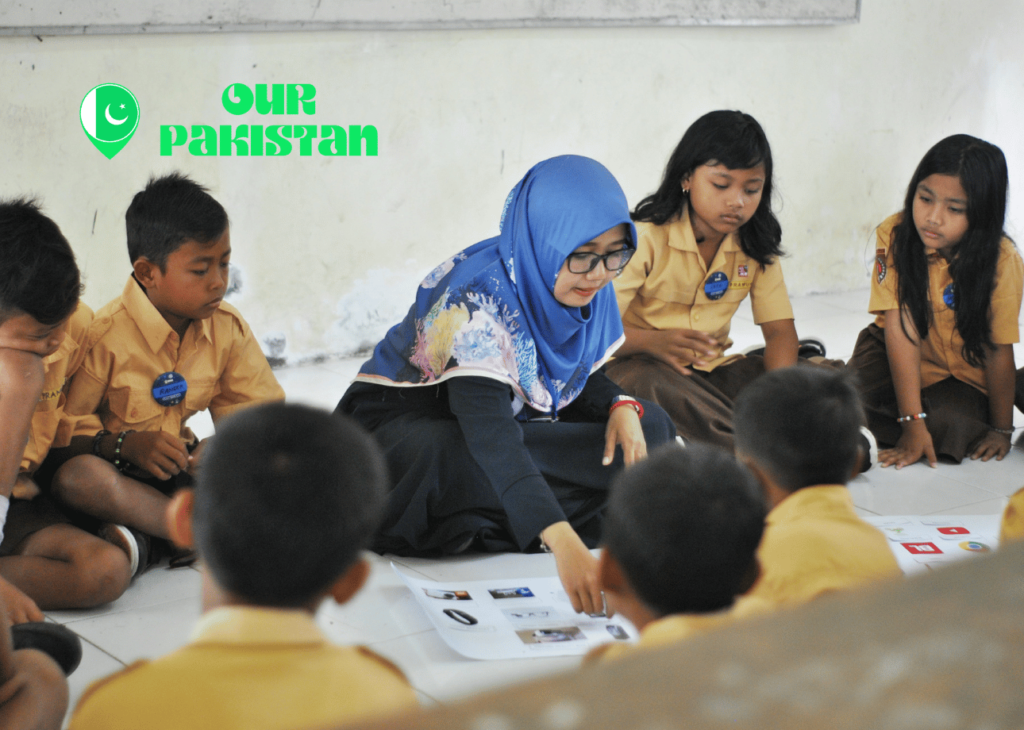Women’s education plays a crucial role in the progress of society. By providing women with access to education, they can become active contributors to the development and advancement of their communities. Unfortunately, the state of women’s education in Pakistan still faces numerous challenges and barriers.
The Educational Landscape for Women in Pakistan
Throughout history, women in Pakistan have faced significant barriers to accessing education. Traditional cultural norms often restricted women’s roles in household chores, limiting their opportunities for educational advancement.
Even in modern times, gender disparities persist in the realm of education. Many girls in Pakistan are still deprived of their right to education, as societal norms prioritize education for boys over girls. This has resulted in a significant disparity in educational opportunities between male and female students.

Challenges and Barriers
Socio-cultural factors, such as early marriages and societal expectations, pose significant challenges to girls’ education in Pakistan. Deep-rooted beliefs often discourage families from sending their daughters to school, perpetuating a cycle of limited education and opportunities for women.
In rural areas of Pakistan, the lack of educational infrastructure and resources further exacerbates the challenges faced by women in accessing education. Limited school facilities, inadequate teaching staff, and a lack of necessary educational materials hinder girls’ education in these areas.
Initiatives for Women’s Education
Recognizing the importance of empowering women through education, both the government and non-governmental organizations have initiated numerous programs and policies to promote girls’ education in Pakistan. These initiatives aim to increase enrollment rates and support educational access for girls across the country.
Scholarships and financial incentives play a crucial role in breaking down barriers to women’s education. By providing financial support to deserving girls, these programs enable them to pursue their educational aspirations and overcome financial limitations.
Women’s Education and Economic Empowerment
Education serves as a catalyst for women’s economic empowerment. When women are educated, they acquire the skills and knowledge necessary to enter the workforce, contribute to the economy, and actively participate in decision-making processes.
Countless success stories highlight the significant impact of educated women on societal progress. Educated women in Pakistan have become leaders in various fields, including politics, sciences, arts, and entrepreneurship, showcasing the transformative power of education.
The Role of Education in Women’s Empowerment
Education equips women with critical thinking, decision-making, and leadership skills. Through education, women develop the ability to make informed choices, lead initiatives, and contribute to shaping their own destinies.
Education serves as a powerful tool in breaking the cycle of poverty and gender-based discrimination. By providing women with educational opportunities, they can acquire the necessary skills to secure better job opportunities, improve their socio-economic status, and challenge prevalent stereotypes.
Overcoming Gender Stereotypes
Education plays a vital role in challenging traditional gender roles and stereotypes prevailing in Pakistani society. As girls receive educational empowerment, they learn to question societal norms and expectations, empowering themselves to pursue careers and paths that were once considered unconventional.
Through education, we can foster a more inclusive and gender-equal society. By instilling values of equality, respect, and acceptance, we can break down the barriers that limit women’s opportunities and create an environment where women can excel in all aspects of life.
Access to Quality Education
Equal access to quality education is crucial, particularly for girls in marginalized communities. Efforts should focus on providing adequate educational facilities, trained teachers, and an inclusive curriculum that addresses the specific needs and challenges faced by girls.
Creating gender-responsive school facilities and curriculum is essential to address the unique barriers faced by girls. Schools should prioritize the provision of safe spaces, sanitation facilities, and learning materials that cater to the specific needs of female students.

Addressing the Dropout Rate
Various factors contribute to the high dropout rates among girls in Pakistan, including early marriages, societal pressures, lack of access to sanitary facilities, and economic constraints. These factors often force girls to abandon their education prematurely.
To reduce the dropout rates among girls, comprehensive strategies need to be implemented. These may include awareness campaigns, community engagement, vocational training programs, and the provision of scholarships and financial incentives to mitigate the economic challenges that lead to dropout rates.
Empowering Women in STEM Fields
Promoting girls’ interest and participation in STEM fields is crucial for their empowerment. Encouraging girls to pursue careers in science, technology, engineering, and mathematics opens doors to a wide range of opportunities and challenges prevailing gender stereotypes.
Having role models and access to mentorship is vital for aspiring female professionals in STEM fields. Offering mentorship programs, organizing workshops, and highlighting successful women in these fields can inspire and empower young girls to pursue their passions and excel in STEM careers.
Empowering Women through Literacy Programs
Literacy programs play a pivotal role in women’s overall development and empowerment. Being literate equips women with the ability to communicate effectively, make informed decisions, access information, and actively engage in their communities.
Providing adult education and lifelong learning opportunities is essential for the empowerment of women who were previously denied access to education. These programs enable women to gain new skills, enhance their knowledge, and participate fully in their personal and professional lives.
Promoting Girls’ Education in Conflict Zones
In conflict zones, education becomes even more vital as it provides stability, hope, and an escape from the cycle of violence. Investing in girls’ education in conflict-affected areas is essential to ensure their future prospects and to prevent them from falling prey to extremism.
Efforts should be made to support education initiatives specifically designed for girls affected by conflict. This includes providing safe learning environments, trauma-informed education, and psychosocial support to help them overcome the difficulties they face and rebuild their lives.
The Role of Family and Community
Family and community support are integral to promoting girls’ education. Engaging families through awareness campaigns, encouraging parental involvement, and fostering a culture that values and supports girls’ education can help overcome traditional barriers.
Advocacy and awareness campaigns are crucial to promote gender equality in education. By raising awareness about the importance of girls’ education and challenging deeply ingrained stereotypes, we can foster a collective responsibility toward empowering women through education.
Future Prospects and Recommendations
Educated women possess immense potential to shape the future of Pakistan. By harnessing their talents, knowledge, and capabilities, they can drive social and economic progress, contribute to policy-making, and lead the country toward sustainable development.
To enhance women’s education, policymakers should focus on developing comprehensive strategies that address the root causes of gender disparities in education. This may include investing in educational infrastructure, teacher training, curriculum revisions, and ensuring equal access to educational opportunities.
Conclusion
Education has the transformative power to empower women and change societies. By providing girls and women with access to quality education, we can break down barriers, challenge stereotypes, and create a more equitable and inclusive world. Empowering women through education is a collective responsibility that requires the commitment and collaboration of individuals, communities, and policymakers alike.